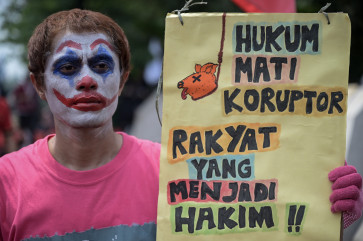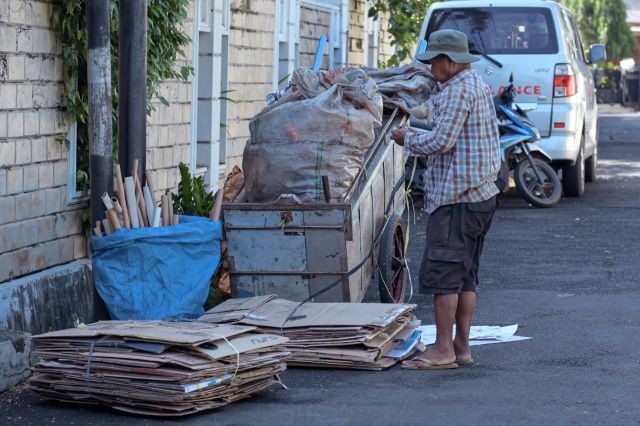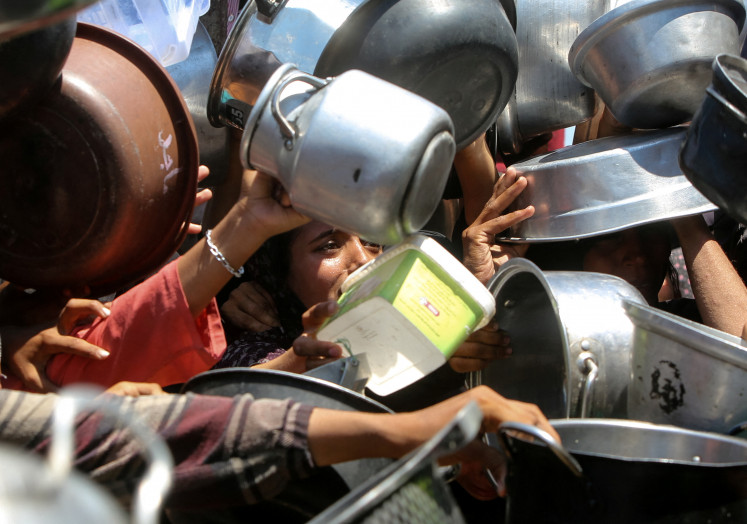Popular Reads
Top Results
Can't find what you're looking for?
View all search resultsPopular Reads
Top Results
Can't find what you're looking for?
View all search resultsVillagers learn budget allocation to ensure that funds are spent well
Milka Maryanti Boys, 30, is a housewife in Raknamo in Kupang, East Nusa Tenggara (NTT)
Change text size
Gift Premium Articles
to Anyone
M
ilka Maryanti Boys, 30, is a housewife in Raknamo in Kupang, East Nusa Tenggara (NTT). Like most other women in her village, she only completed primary school.
However, Yanti, as she is better known, now has a better grasp of the village’s budgeting scheme, thanks to a workshop.
“We now have more opportunities to control the budget, ensuring that we don’t waste the money that we have by spending it on useless activities,” she told The Jakarta Post.
Yanti is one of the residents of Raknamo who participated in the Sekolah Anggaran Perempuan (SAP), or women’s budget school, launched by East Kupang sub-district head Monarchy Dethan in July.
In Raknamo, as in many other villages throughout the province, women play an important role in agriculture and food production for their families.
However, the government allocates about Rp 70 million (US$7,341) to Rp 100 million a year for each village as part of its rural development budget (ADD).
The amount is small. An even smaller amount of the ADD budget goes to meet women’s needs, making budget monitoring important, according to activists.
“Through monitoring, we can ensure more money will be spent on farming, such as to buy seeds for farmers so we can grow more food crops and earn more income, as in time of crisis, we will suffer the most,” Yanti said recently.
Oxfam’s deputy country director, for Indonesia, Aloysius Suratin, said it was normal for the government’s rural development budget not to reach local women.
Aloysius attributed the problem to a poor understanding of the real needs of local women or about how to best to use the money to fulfill women’s needs. “In most cases, the [ADD] budget fails to meet the critical needs of women,” Aloysius recently told the Post.
Under the Local Initiative to Strengthen and Empower Women (LISTEN) — a one year-project worth £35,000 — Oxfam and its local partners, including CIS Timor, established the SAP program, which aims to increase the confidence of local women, he said.
“In the SAP program , they [women] can learn to develop self-esteem and skills they may need both to voice their ideas and to participate more actively in budgeting activities,” Aloysius said.
Ten SAP programs have been implemented in West Timor since the LISTEN project was launched in earlier this year.
In Kupang regency, for example, the schools operate in five villages: namely Merdeka, Naibonat, Oefafi, Raknamo and Tanah Merah.
In Timor Tengah Selatan (TTS), the SAP program has operated in two villages: Enoneontes and Pusu.
The other regencies hosting SAP projects include Belu and Timor Tengah Utara (TTU).
Each school has about 10 to 15 female students.
“Building self-confidence appears to be the key for the full involvement of women in the budget-decision making process,” Aloysius said.
During the program, women in the villages meet every month to discuss challenges they face to achieve equal opportunity in the domestic and public spheres.
At the end of every meeting cycle, the women, supported by facilitators, design a plan of practical activities that correspond to a particular topic under discussion.










